Nine LivesA Chef's Journey from Chaos to Control
A rising young chef lays bare his gripping story of culinary triumphs, consuming drug additions, and his continuing quest to stay on top while staying sober.
At twenty-six years old, Brandon Baltzley was poised for his star turn as the opening chef at Chicago’s hotspot Tribute. People called him a prodigy—the Salvador Dali of cooking—and foodie blogs followed his every move. Instead, Brandon walked away from it all and entered rehab to deal with the alcohol and cocaine addiction that had enslaved him most of his adult life.
Brandon grew up in the South with no father and an addict mother. At eight, he was prepping vegetables in the back of a gay bar. From there, he went on to deep-frying with Paula Deen to cooking in an array of Michelin-starred restaurants, including Grant Achatz’s world-renowned Alinea. In between, he was touring the country with his heavy metal band, Kylesa—and doing his first stint in rehab.
Like Gabrielle Hamilton’s Blood, Butter and Bones, Brandon’s Nine Lives is about blazing a way out from a rough childhood through talent and an unbridled passion for the craft of cooking. A story that’s still being written as Brandon begins work at Crux Restaurant in Chicago, Nine Lives serves up a raw and riveting memoir about food, rock-and-roll, and redemption.
“Baltzley has a clear passion for food, which will attract readers drawn to the personalities behind the dishes, but his eye-openingly honest account of drug addiction clearly separates his story from most foodie memoirs… After following Baltzley on his breakneck trip through both high-end and middle-of-the-road restaurants across the country, readers will wonder what this unusual chef’s next life will bring.”
—Booklist
“Nine Lives is a compelling story of perseverance and the power of food. I’m honored to have been a part of Brandon’s journey.”
—Wylie Dufresne, Chef /Owner of wd-50, Alder
“Nine Lives is a cool mix of food and drugs. Baltzley’s story is captivating. His voice is raw and honest. Makes you hungry, and repulsed all at the same time–but in the best way possible. The frenetic energy in his life is captured by the bullet train fast narrative. A great work of art.”
—Nic Sheff, best-selling author of Tweak and We All Fall Down
“Nine Lives is a compelling story about my industry and the perils of its least endearing ingredient, addiction. It’s a crazy journey through the life of Brandon Baltzley, a phenomenally talented, self-taught, but self-destroying, chef. Poignant, heartbreaking, funny and ultimately victorious, it’s a story about being happy with yourself, which is sometimes harder than any dish you can cook. Life, like food, is easy to fuck up.”
—Hugh Acheson, James Beard Award winning chef and author of A New Turn in the South
“If James Frey and Anthony Bourdain had a love child, Brandon Baltzley would be their delightful and devilish spawn.”
—Michael Nagrant, Chicago Sun-Times food critic and contributor to the Alinea cookbook
By the time I was in middle school, my mom no longer owned the Whistle Stop, and I wasn’t much interested in hanging around making turkey chowder with her. I’d started spending most of my time with a group of four guys: Michael, Scott, Trey, and James. We were like most kids hanging out in Jacksonville those days—we skateboarded, we listened to punk rock and hardcore, went to shows, and liked to get into trouble. We spent most of our weekday afternoons hanging out in Trey’s garage, practicing covers for our punk-noise band, but on weekends, we were always at my house. We would stay up to the crack of dawn, maybe sleeping for only an hour, after inevitably sneaking the occasional beer and cigarette from my mother’s stash over the course of the night. When the sun rose, we would skate over the Cedar River Bridge, into strip mall parking lots or closed banks.
By noon, we’d always make it back to my house. The summer sun in northern Florida is not kind, and by then we’d be exhausted from our night out. But more importantly, there was always one thing we could count on: food. And I’m not just talking about frozen pizzas.
Even when my mom wasn’t working in a kitchen, she was always cooking something. It could be one hundred degrees out and we could come home to a beer-braised pork shoulder. Other times, my mom would make steaks for six different kids, covering the meat in sautéed mushrooms and taking temps for every kid’s preference. She had an old, worn-out copy of The Joy of Cooking, and an ever-expanding rotation of teenage boys plowing through her kitchen, sunburnt and tired and ready to dig into any food she put in front of them.
There were hard times in my childhood, but I never went hungry, and neither did any of the friends I grew up with. We all learned to eat at my mom’s kitchen table, and even though none of us are really close anymore, it’s still something that connects us, and something that we talk about every time we’re in touch.
I wouldn’t be a cook today had my mom not showed me the true beauty of cooking for others and sharing the pure pleasure of food with the people you love. She’s the one who filled my belly as a child, and the one who put the first knife in my hand. But more than anything else, it was the look on her face as she cooked at the Whistle Stop Café that came back to me that morning in the cab on my way to rehab. It was as serene as I have ever seen my mother. Tranquil. She was at peace with her surroundings, and nothing outside of the moment could ruin that.
I didn’t last terribly long in rehab that May. But I did get myself sober. I’ve been far more in control of my life and my impulses since then and have embarked on so many new projects that it’s hard to fathom that it’s been only a couple of years. Most important, I founded a culinary collective called Crux. The word means a pivotal point, a puzzling problem, the most important part. More than a restaurant idea, it’s a philosophy, an ever-evolving concept that’s now made its mark in cities and on farms and in restaurants all over the world.
I know now that Crux wouldn’t have been possible if I hadn’t had my mother guiding me by her example. The food at the Whistle Stop Café was no different from what we ate at home, or what she made for family and friends, which is exactly what we aspire to at Crux. Through it all, there was a spirit of adventure, of experimentation, and most important, of nourishing and providing for the people she felt understood her best. She was able to make something of herself by doing what gave her pure freedom, and above all else, she taught me to do the same. And she never gave up, reinventing herself over and over again, opening doors where there didn’t even seem to be a window.
It seemed impossible at the time, but sitting in that dismal cab, talking to the reporter about my past, I was also laying out a plan for my future. I didn’t know it then, but I was about to have my own Whistle Stop Café.
In some ways, my life did end on May 17, 2011. But just as quickly, another one started. This is the story of how it happened.
Excerpted from NINE LIVES by Brandon Baltzley. Copyright (c) 2013 by Brandon Baltzley. Reprinted by arrangement with Gotham Books, a member of Penguin Group (USA), Inc.


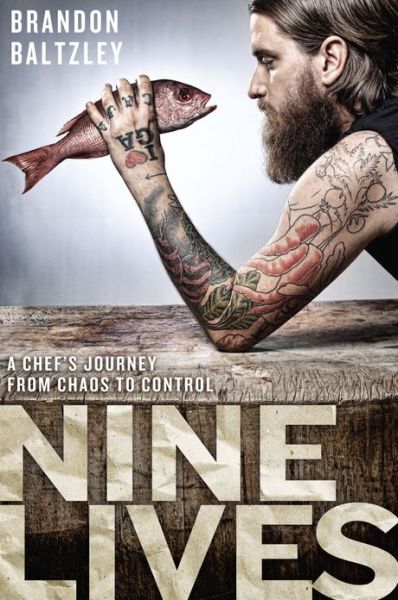


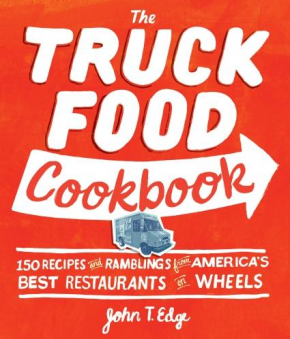
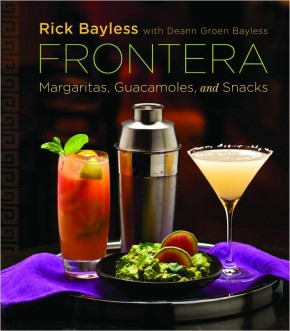
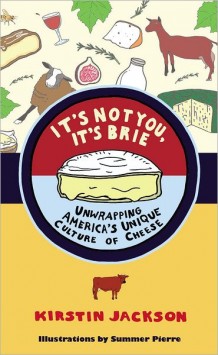
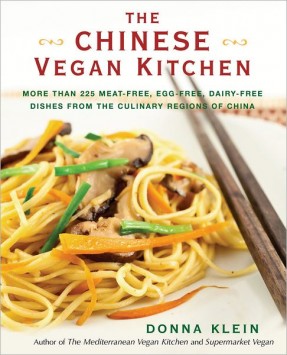
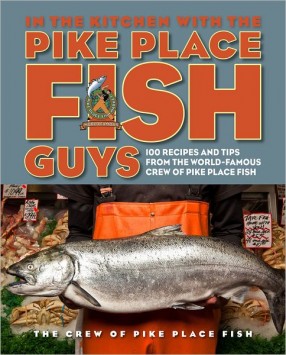
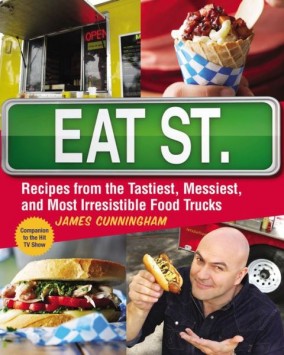
Leave a Reply